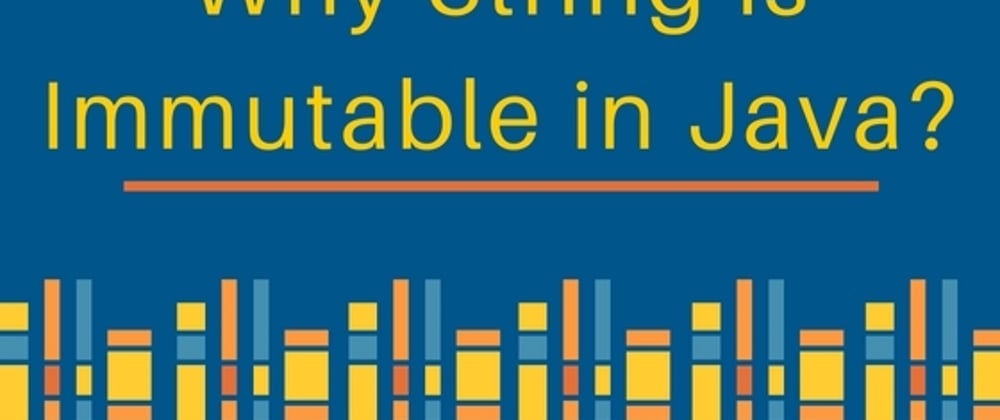Immutable Strings: A Key Element in Ensuring Information Uniformity and Integrity
In the realm of data management, the value of immutable strings can not be overstated. These unchanging series of characters play an essential function in supporting the honesty and precision of information within systems. By maintaining a state of immutability, data uniformity is ensured, cultivating a structure of dependability whereupon critical procedures count. The principle of unalterable strings goes beyond mere formality; it is a linchpin in the complicated web of data administration. As we check out the advantages, execution strategies, and functional applications of unalterable strings, a clearer picture emerges of their indispensable nature in safeguarding the electronic landscape.
The Idea of Unalterable Strings
Immutable strings, a fundamental principle in shows, refer to strings that can not be customized once they are created. In essence, once a string value is designated, any kind of procedure that shows up to modify the string actually creates a brand-new string. This immutability makes sure information uniformity and dependability in applications, as it prevents unexpected modifications to the original information.
Advantages in Data Uniformity

Data consistency is critical in different aspects of software growth, including database management, multi-threaded atmospheres, and dispersed systems (Why are strings immutable in Java?). Immutable strings add considerably to accomplishing this uniformity by protecting against data corruption as a result of simultaneous accessibility. In situations where several processes or strings communicate with the same information concurrently, immutable strings act as a secure versus race problems and synchronization problems
Moreover, the immutability of strings streamlines debugging and testing procedures. With immutable strings, developers can rely on that when a string is set, it will certainly remain unmodified, making it easier to map the source of errors and making certain that test instances create regular outcomes. This integrity in data managing inevitably results in more secure and robust applications.

Applying Immutable Strings
Guaranteeing the immutability of strings needs a thoughtful strategy to their implementation in software advancement. When a string things is developed, one essential technique is to make string classes in a method that avoids adjustments. By making strings unalterable, designers can improve information uniformity and reliability in their applications.
To carry out immutable strings successfully, developers should favor developing brand-new string items instead of changing existing ones. This method makes sure that as soon as a string is appointed a value, it can not be altered. Furthermore, any kind of procedure that appears to modify the string ought to produce a brand-new string with the desired modifications as opposed to modifying the original.
In addition, utilizing unalterable strings can streamline concurrency monitoring in multi-threaded environments. Considering that unalterable strings can not be altered after creation, they can be securely shared among numerous strings without the threat of data corruption.
Role in Integrity Assurance
In software application development, the application of immutable strings plays an essential duty in making sure the reliability of information operations. Unalterable strings, once developed, can not be customized, making certain that the data they stand for continues to be constant throughout the application's execution. This immutability property supplies a level of assurance that the data being refined will not be accidentally altered, causing unanticipated outcomes or errors in the system.
By incorporating immutable strings into software layout, designers can improve the reliability of their applications by reducing the threats related to mutable data - Why are strings immutable in Java?. Immutable strings assist in avoiding data corruption or unintentional modifications, which can be especially vital when check it out managing sensitive info or when information stability is paramount
In addition, making use of unalterable strings simplifies concurrent processing, as multiple strings can safely accessibility and share string data without the risk of one thread changing the material while another is reading it. This facet contributes substantially to the overall reliability of the software system, ensuring consistent and predictable habits in data taking care of procedures.
Applications and System Combination
The seamless combination of unalterable strings right into different applications and systems is critical for making certain durable data uniformity and reliability across diverse technical settings - Why are strings immutable in Java?. Unalterable strings play a crucial function in enhancing the stability of data exchanges and communications within facility software application ecosystems. By including immutable strings right into applications, designers can minimize the threats related to information tampering, unapproved adjustments, and unintentional alterations, thus strengthening the general security pose of the system
In the context of system assimilation, immutable strings act as a foundational component for establishing Discover More secure communication networks and assisting in smooth data transfers between various elements. Their unalterable nature ensures that information sent in between systems remains unmodified and verifiable, minimizing the possibility of disparities or errors that could jeopardize the integrity of the whole system. Additionally, unalterable strings can improve interoperability in between inconsonant systems by offering a standardized style for data representation, allowing a lot more reliable information handling and exchange protocols across interconnected platforms. By embracing immutable strings in applications and system combination procedures, companies can strengthen their information infrastructure and promote the dependability and consistency of their details properties.
Final Thought
Finally, immutable strings play a critical function in maintaining data consistency and dependability in different applications and system integrations. By making certain that strings can not be changed when produced, the honesty of information is preserved, minimizing the threat of mistakes and inconsistencies. Implementing unalterable strings can significantly boost the integrity of systems, inevitably bring about even more precise and reliable information processing.
